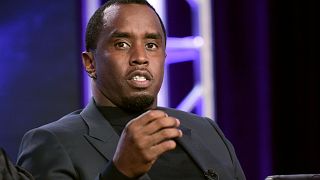Interview
As Africa battles COVID-19, Dr Chris Fomunyoh calls on African leaders to take measures to soften the economic blow of the pandemic as fear of social unrest loom.
Dr Chris Fomunyoh is an expert on democratization in Africa; Senior Associate and Regional Director for Central and West Africa, National Democratic Institute; a non-profit and nonpartisan organization working to strengthen democratic institutions worldwide.
He shares his views on governance techniques during this period from Washington D.C., United States of America, where he has been able to co-ordinate, organize and advise international election observation missions in almost all African countries working alongside heads of state and government, ministers, elected officials and civic leaders. Some African countries are likely to postpone elections as they may face challenges made worse by increased costs and unplanned circumstances during COVID-19. How can they handle the situation?
: Dr Fomunyoh
: Well so far we have seen 3 different approaches from African countries. We have seen countries such as Mali and Burundi that went ahead and organised elections in April and May. We have other countries such as Tanzania and Malawi that are still trying to figure out whether to maintain their electoral timelines till now. We have a country like Ethiopia where the issue of the postponement of the election is being currently debated. So this is definitely a pandemic that will impact the electoral calender in multiple African countries. How can we use technology and creativity to bring down costs during elections in Africa, because some elections risk being cancelled due to insufficient resources?
Dr Fomunyoh
: Sure there is the question of resources but there is also the difficulty of respecting some of the measures to curb the further contamination of populations due to the COVID-19 pandemic. For reasons of social distancing for example you can no longer hold massive political rallies because populations will be exposed. And so a lot of communication will need to be done by political parties and candidates, using the media and using modern technology; and even citizen organisations that traditionally monitor elections will have to do a lot of their work including the transmission of their reports using technology, telephones, mobile phones and computers to transmit information. And so we all are going to be compelled to rely on innovation and new technology to help us cope with our election. Do we have any reason to be scared that Democratic Institutions will be weakened in any way due to the COVID-19 pandemic?
: Dr. Fomunyoh : Well I wouldn’t be that scared, but the truth is that democracy and democratic institutions are going to be tested. And in some countries because political space will be shrinking, some regimes that are not very committed to democracy will use the pretext of the pandemic to try to re-enforce the powers of the executive branch of government. But in countries that are committed to democratic governance I am sure that the leaders, elected officials, political party leaders and civic leaders would find ways to work with their respective election commissions so that there could be inclusive processes that will have everyone giving their input in how elections and other political processes could be managed through this period of COVID-19. And in fact those countries may even come out having their democracies strengthened and the resilience of the people being compensated accordingly.
In one of your interventions with Chatham House you talked about the need for goodwill among African leaders. Can we count on the goodwill of African leaders to promote democracy during this period . And is this an opportunity to make elections more transparent than before?
: Dr Fomunyoh
: Sure, certainly. I will say that in the past two decades, we have seen a number of African leaders who have come forward to be proponents of democratic governance and who have made efforts to make sure that political power can change hands through the ballot box and that elections can be organised in a meaningful way that give voice to citizens. So there is a track record that one could be proud of. But at the same time we also know that we still have some recalcitrant and autocratic regimes that make it difficult for citizens to organise and participate in credible polls and we would use opportunities such as this one to urge African democrats whether they are in civil society organisations or in political parties to continue to hold their leaders accountable. And also appeal to leaders to make decisions that can safeguard their places in history, that can safeguard their legacy as people who governed justly and who contributed to making sure that democracy could be strengthened across the African continent. With an impending economic crisis and the possible rise of unemployment should we be scared of possible scenarios of unrest across the continent as a result of elections?
Dr Fomunyoh
: Well you don’t want to be a prophet of doom because this global pandemic is affecting not just Africa but countries across Europe, Asia, North America as well. And many of the economies of these countries are going to be negatively impacted by the pandemic. So I wouldn’t be surprise to see some of the social movements that we now see in the United States and parts of Europe also be felt in Africa. But the test is going to be to see how African governments can take measures to soften the economic blow of the pandemic and how they can also work with other stakeholders to make sure that there is economic relief for the companies that will create jobs, for the private sector that will create jobs that young people still find opportunities in the post COVID period and that countries can be stabilised in a way that will allow them to bounce back both economically and politically as well. Let me take you to a news making event because we are gradually getting to the end of our programme. In the Democratic Republic of Congo a high profile graft case involving President Felix Tshisekedi’s Chief of Staff has been evolving. What is the impact of anti graft drives on good governance on the continent?
Dr Fomunyoh
: Well as you rightly indicated, the case in the Democratic Republic of Congo is still ongoing. It’s a very high profile case, I wouldn’t comment on it because the investigations are still ongoing and the trial is still ongoing. But it is a case that we are monitoring very closely alongside the Congolese people who want to be able to determine whether this is an honest effort to curb corruption which turns to impact very negatively on the wellbeing of citizens. And I am sure that if justice prevails and the investigations are conducted in a very transparent manner, at the end of the day it will send a very strong message not just to Congolese but to office holders across the continent that the judiciary has a role to play and that corruption has a negative impact on the wellbeing of our economies and our countries.












01:47
Chinese city of Xuchang is world's biggest producer of wigs
01:15
U.S. considers adding more African countries to travel ban
Go to video
Nigeria: Tinubu denies one-party plan after he's accused of clamping down on opposition
02:24
Celebration and protests: Nigeria marks 26 years of uninterrupted democracy
01:14
Mali: Assimi Goita could soon be president until 2030 - without an election
01:00
Renewed calls to end plastic pollution on World Environment Day